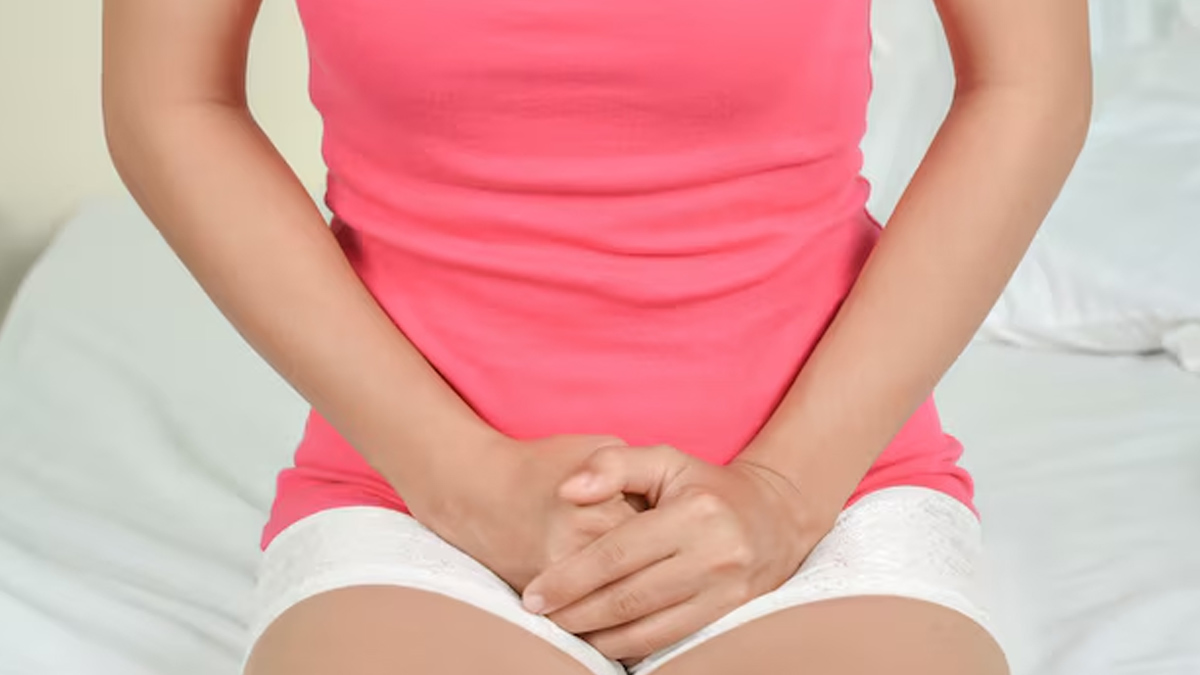
A yeast infection, also known as candidiasis, is a fungal infection that is caused by an overgrowth of yeast. It can be extremely discomforting, often leading to symptoms like vaginal itching, burning, and thick, white discharge. While doctors usually prescribe antifungal medications to treat the condition, it is important to note that the condition might return without proper measures.
Table of Content:-
Speaking with the OnlyMyHealth team, Dr Mahua Bhattacharya, Consultant Gynaecologist, Fortis Hospital, Anandapur, shares useful insights into how you can manage and reduce the risk of recurrent yeast infections.
Also Read: Experiencing Sudden Rise in Vaginal Discharge? Here Are Some Possible Causes
What Causes Recurrent Yeast Infection?

Globally, recurrent vulvovaginal candidiasis, or recurrent yeast infections, affects about 13.8 crore women annually, with a global annual prevalence of 3871 per 100,000 women, according to a review published in The Lancet Infectious Diseases.
According to Dr Bhattacharya, some of the common causes of recurrent yeast infections include:
- An imbalance of good and bad bacteria in the gut can lead to recurring yeast infections.
- Broad-spectrum antibiotics can cause yeast to overgrow.
- Changes in oestrogen levels during menstruation, pregnancy, or menopause can contribute to yeast overgrowth.
- Diabetes and poor diet
- Chronic stress can weaken the immune system, making it harder to fight off yeast infections.
- Not completing treatment or using over-the-counter medications incorrectly can lead to recurring infections.
- Wearing tight-fitting clothes can create a warm, moist environment that fosters yeast growth.
It is important to note that underlying health conditions can significantly contribute to recurring yeast infections too. “Certain conditions, such as diabetes, obesity, HIV/AIDS, autoimmune disorders, and cancer, can increase the risk of yeast infections. Hormonal imbalances, like those experienced in thyroid disorders or Polycystic Ovary Syndrome (PCOS), can also play a role,” says Dr Bhattacharya.
Additionally, medications and treatments like antibiotics, steroids, and chemotherapy can disrupt the body's natural balance, leading to yeast overgrowth.
Furthermore, nutritional deficiencies, sleep disorders, and other factors can also weaken the immune system, making it harder to fight off yeast infections.
For those of you who experience recurring yeast infections, it's essential to consult a doctor to rule out any underlying health conditions, the doctor advises.
Also Read: Internet Claims Toilet Paper Can Cause Yeast Infection: Is This True?
Tips To Reduce Risk Of Recurrent Yeast Infection

Diet, lifestyle changes, and home remedies can play a major role in preventing and managing recurrent yeast infections. Here are some effective ways:
Diet changes
- Yeast feeds on sugar, so limiting it can help prevent overgrowth, and instead have fibre-rich foods like fruits, vegetables, and whole grains, which can help regulate blood sugar.
- Eating probiotic-rich foods like yoghurt can support healthy gut bacteria.
- Drinking plenty of water helps in flushing out toxins and prevents yeast overgrowth.
- Avoiding refined carbohydrates like white bread, pasta, and baked goods.
Lifestyle changes
- Practise good hygiene.
- Wear breathable, loose-fitting clothing to reduce moisture.
- Engage in stress-reducing activities like meditation, yoga, or deep breathing.
- Aim for 7-8 hours of sleep per night to help regulate the immune system.
- Regular physical activity can help improve circulation, reduce stress, and boost the immune system.
Home remedies
- Apply tea tree oil to the affected area using a cotton swab.
- Use plain yoghurt as a topical application.
- Utilise boric acid suppositories or add it to a warm bath.
- Add apple cider vinegar to a warm bath.
“OTC treatments, on the other hand, include clotrimazole (Gyne-Lotrimin), miconazole (Monistat), terconazole (Terazol), and fluconazole (Diflucan), which come in various forms such as creams, tablets, suppositories, and oral suspensions,” Dr Bhattacharya shares further.
When To See A Doctor?

If you have a recurrent yeast infection, it is best to consult a doctor. This is particularly crucial if you’ve tried Over-The-Counter (OTC) products and they haven’t been effective.
Additionally, if you’re experiencing chronic yeast infections, this could be a sign that you have an underlying condition, such as diabetes. Your doctor can investigate the root cause and provide effective treatment and lifestyle counselling to prevent chronic yeast infections from coming back in the future.
Pregnancy changes can also influence the hormonal and pH balance of the vagina and may increase the likelihood of getting a yeast infection. Explore your treatment and management options with expert guidance.
Conclusion
Yeast infections are common and treatable. However, in some cases, it can be recurrent, meaning it can develop again and again. If you are facing such an issue, it is important to consult your doctor. Take proper hygiene measures and follow healthy diet and lifestyle habits. Home remedies can also prove effective. However, a doctor or a medical professional can guide you best.
Also watch this video
Read Next
Fertility Under Threat: Microplastics Now Found Inside Human Ovaries, Here's What Women Need To Know
How we keep this article up to date:
We work with experts and keep a close eye on the latest in health and wellness. Whenever there is a new research or helpful information, we update our articles with accurate and useful advice.
Current Version